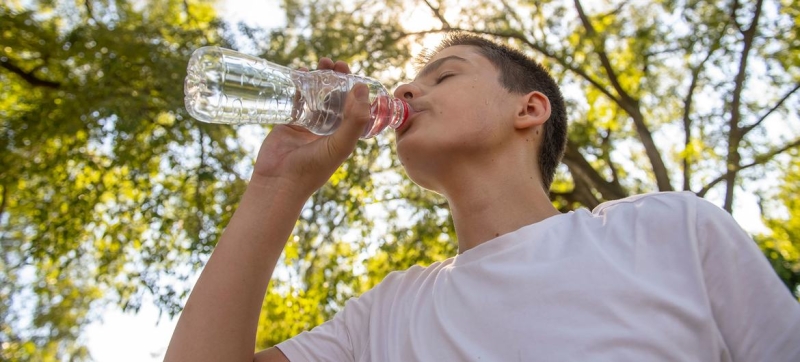
About half of children in Europe and Central Asia – 92 million – are already exposed to frequent heat waves. UNICEF: Heat in Europe and Central Asia kills almost 400 children a year Climate and Environment
An estimated 377 children have died in 2021 as a result of rising temperatures in Europe and Central Asia, according to an analysis of new data from 23 countries released by UNICEF on Tuesday. Half of them died from heat-related illnesses during the first year of life.
“About half of children in Europe and Central Asia – 92 million – are already exposed to frequent heat waves in a region where temperatures are rising at the fastest rate in the world,” said Regina de Dominicis, UNICEF Regional Director for Europe and Central Asia. ;nbsp;– Rising temperatures can lead to serious health complications for children, especially the youngest. Without medical attention, these complications can be life-threatening.”
High temperatures have a serious impact on babies before they are born and can lead to premature birth, low birth weight, stillbirth and congenital anomalies. Heat stress is a direct cause of infant mortality, can affect infant growth, and cause a number of childhood diseases. The report also found that extreme heat was responsible for the loss of more than 32,000 years of healthy life among children and adolescents in the region.& ;nbsp;
Read also:
June 2024 becomes the hottest on record
As temperatures continue to rise, UNICEF calls on governments Europe and Central Asia to develop strategies to reduce the impact of heat waves on populations, with a focus on children.
UN Children’s Fund points out the need to invest in action plans to heat, primary health care to better combat heat-related illnesses, and climate early warning systems.
UNICEF experts call for educational institutions to adapt to reduce temperatures in areas where children play and train teachers to respond to heat stress. In addition, urban design and infrastructure need to be adapted: buildings must be designed to minimize heat exposure. Finally, UNICEF recommends ensuring safe water supplies to residential urban areas, especially in countries where water quality and availability are deteriorating.
UNICEF continues to work with governments, humanitarian partners and local communities throughout region to build resilience to extreme heat, which includes training teachers, health care workers and families in the knowledge and skills to respond to heat stress.
